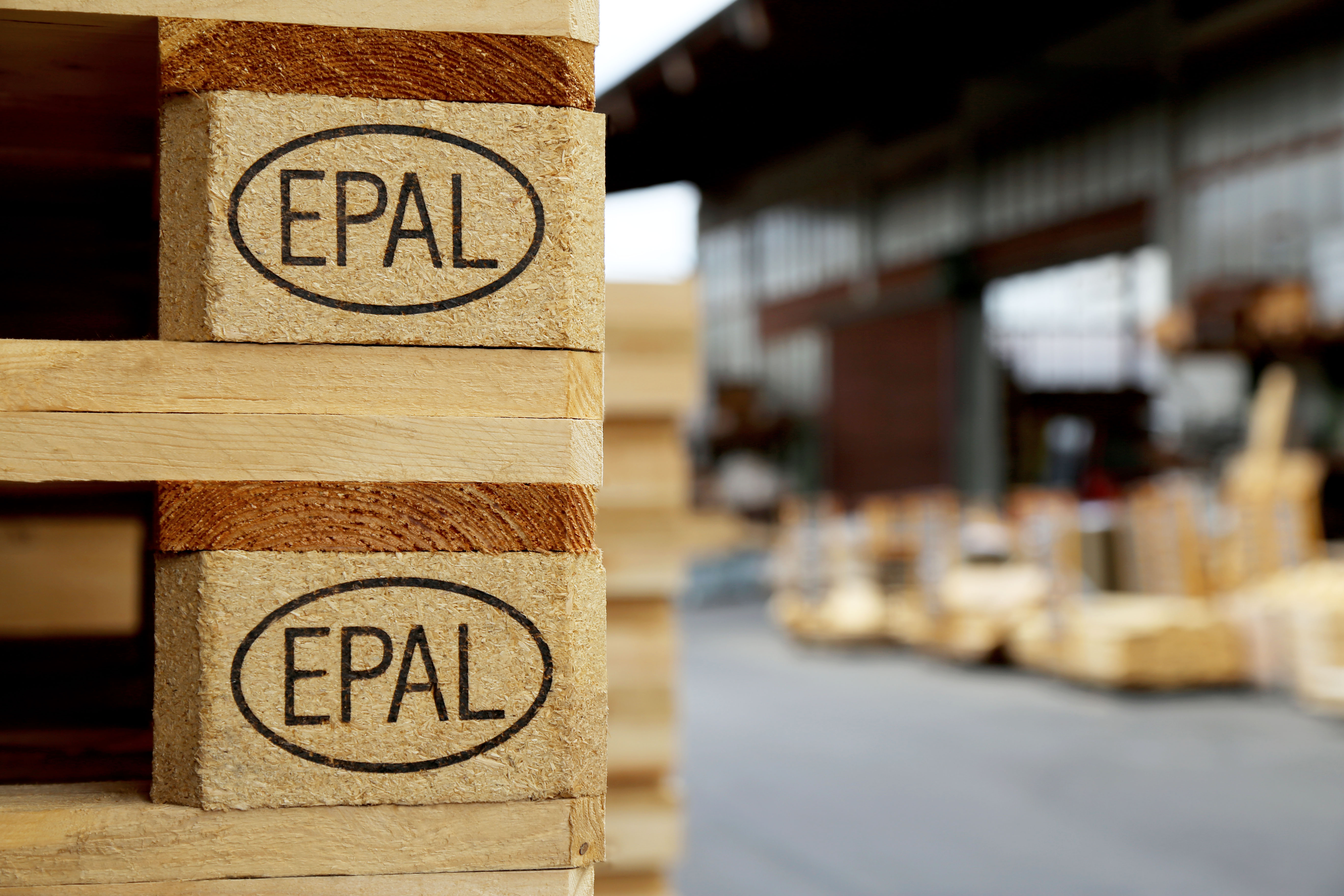Safety for employees and goods takes top priority for EPAL
European Pallet Association e.V. (EPAL)
PRESS RELEASE
Safety for employees and goods takes top priority for EPAL
Majority of Euro pallet users support EPAL’s recommended action. EPAL takes concerns of a few individual users seriously.
Düsseldorf, 23rd March 2017 – The European Pallet Association e.V. (EPAL) is taking the concerns of users of Euro pallets relating to the termination of the exchangeability agreement very seriously. This despite EPAL considering that practice will show that these fears are unfounded. EPAL’s decision to terminate the exchangeability agreement with the UIC has been positively received by many users in Germany and other European countries. They report that with the recommendation to restrict exchanges to EPAL Euro pallets in future, EPAL is simply formalising a development which the majority of users have been practising for safety reasons in logistics processes for a long time. The annually increasing production figures for EPAL Euro pallets are clear proof that the market is focusing on the “EPAL in oval” brand.
To prevent drawbacks for users, EPAL has set a generous transition period until the end of 2021
During this period, all UIC/EUR pallets produced to the required standards prior to 28/02/2017 can still be exchanged. As EPAL’s decision concerns a recommended action, users can still make arrangements individually that deviate from EPAL’s exchange conditions. Whether the expense of individual exchangeability agreements exceeds the expense of sorting feared by individual users, each user can judge for themselves. As pallets that cannot be exchanged in the EPAL Euro pallet pool (e.g. single-use pallets, pallets with markings from other producers, counterfeit pallets, rental pool pallets) already need to be sorted, EPAL’s assessment, confirmed by many users, is that no major overheads are to be feared with the division of EPAL Euro pallets and UIC/EUR pallets, especially since EPAL Euro pallets account for the vast majority of exchange pallets.
On the other hand, Martin Leibrandt, CEO of EPAL, stresses that EPAL’s decision to restrict the exchange recommendation to EPAL Euro pallets has some quite significant advantages for users. “When users accept loaded Euro pallets or exchange a large number of used Euro pallets, they are not in a position to inspect the quality of each one individually. They want to be confident that the pallets’ markings are guaranteed and that the pallets are produced, repaired and exchanged in an internationally consistent and effective system of quality assurance.”
EPAL’s quality assurance meets these user expectations. It comprises independent and unannounced inspections of production and repair operations, and includes sanctions imposed for quality breaches, as well as the effective and legal prosecution of counterfeit pallets and repairs by unlicensed operations not subject to EPAL quality assurance.
“The UIC’s activities,” continues Martin Leibrandt, “by no means comply with these requirements, which is acknowledged by those users that have scrutinised EPAL’s decision.” EPAL no longer sees itself in a position to guarantee the effective system of quality assurance expected by users and to continue the exchangeability agreement for UIC/EUR pallets.
The UIC’s statement that “UIC member railways take rigorous action against counterfeiters” is clearly not true. UIC member railways in important European markets such as Germany, Poland, France, Italy and the Benelux countries have not been active in the European railways’ pallet pool for a long time. Most recently, Deutsche Bahn AG terminated their membership of the European railways’ pallet pool at the beginning of 2015. If the UIC sees the responsibility for fighting counterfeits and trademark infringements as being with its member railways, many of which are not actually active in the European pallet pool, this negative development, particularly with regard to counterfeit UIC/EUR pallets, is not surprising.
With the decision to terminate the exchangeability agreement, EPAL is exclusively pursuing the goal of providing users of exchange pallets, now and in the future, with high-quality and safe exchange pallets
Martin Leibrandt comments that “for those who don’t follow our recommendation, safety and quality play only a minor role.”
The negative development concerning the Düsseldorfer pallet is a textbook example of what the consequences can be when quality assurance and the protection of trademarks don’t exist. EPAL will therefore continue to invest any revenues from the licensing business into the organisation of the EPAL Euro pallet pool, comprising for example, internationally consistent quality assurance of production and repairs, intensive detection of counterfeit pallets counterfeits including legal prosecution and the support of users in all questions on using and exchanging EPAL Euro pallets.

